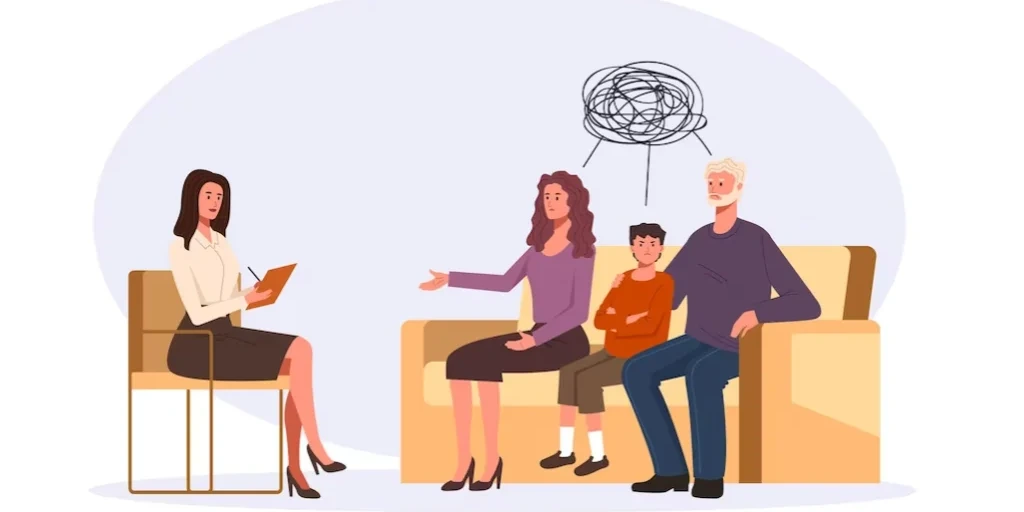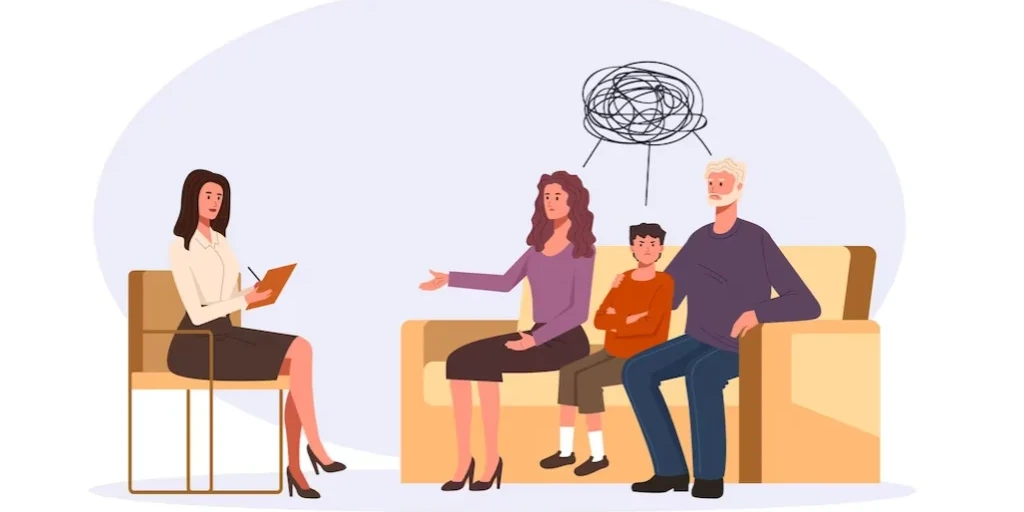24/7 Helpline:
(866) 899-221924/7 Helpline:
(866) 899-2219
Learn more about Eating Disorder Treatment centers in Eudora
Eating Disorder Treatment in Other Cities

Other Insurance Options

Absolute Total Care

Self-pay options

American Behavioral

Access to Recovery (ATR) Voucher

Ceridian

Health Partners

Evernorth

Coventry Health Care

BHS | Behavioral Health Systems

PHCS Network

Excellus
Beacon

UnitedHealth Group

Kaiser Permanente

Anthem

Amerigroup

ComPsych

GEHA

Covered California

Health Choice








DCCCA
DCCCA is a private rehab located in Lawrence, Kansas. DCCCA specializes in the treatment of alcoholi...

Alpha Recovery Center
Alpha Recovery Center is a private agency that provides substance abuse services for individuals str...

Bert Nash Community Mental Health Center
Bert Nash Community Mental Health Center is an outpatient addiction recovery and psychiatric care fa...

Center for Change
Center for Change is a private rehab located in Lawrence, Kansas. Center for Change specializes in t...

Mirror – Lawrence Outpatient Treatment Program
Mirror is a non-profit agency dedicated to provide services to those individuals who are struggling ...

Pegasus House
Pegasus House offers inpatient services for females that are struggling with a Mental Health Diagnos...

Women’s View
Women's View offers inpatient services for females that are struggling with a Mental Health Diagnosi...

Family Continuity Program
Family Continuity Program is a private rehab located in Lawrence, Massachusetts. Family Continuity P...

New Beginnings Peer Recovery Center
Located in downtown Lawrence, Spectrum’s New Beginnings Peer Recovery Center is open Monday through ...

South Bay Community Services – Lawrence Mental Health Clinic
South Bay Community Services - Lawrence Mental Health Clinic treats each individual with specific pr...

Column Health
Column Health offers a new model for substance use and mental health treatment. Column Health restor...











Road to Recovery
Road to Recovery is a private rehab located in Lawrence, Kansas. Road to Recovery specializes in the...

DCCCA – First Step at Lakeview
DCCCA – First Step at Lakeview is a private rehab located in Lawrence, Kansas. DCCCA – First Step at...

Choices Alcohol and Drug
Choices Alcohol and Drug offer outpatient counseling program for individuals seeking for help. Servi...

Structured Outpatient Addictions Program
Structured Outpatient Addictions Program is a non-profit rehab located in Lawrence, Massachusetts. S...

Lawrence Rehabilitation
Lawrence Rehabilitation is a private rehab located in Lawrence, Massachusetts. Lawrence Rehabilitati...

Massachusetts Prevention Center
Massachusetts Prevention Center is a private rehab located in Lawrence, Massachusetts. Massachusetts...

Day One Program – Psychological Center
Day One Program – Psychological Center is a private rehab located in Lawrence, Massachusetts. Day On...

Lahey Health Behavioral Services – Outpatient
Lahey Health Behavioral Services – Outpatient is a private rehab located in Lawrence, Massachusetts....

Arbour Counseling Services
Arbour Counseling Services is located in Lawrence, Massachusetts. Arbour Counseling Services offers ...

Van Buren Community Mental Health Authority – Crisis Stablization
Van Buren Community Mental Health Authority – Crisis Stablization is a public rehab located in Lawre...

Five Towns Community Counseling Services
Five Towns Community Counseling Services is dedicated to provide medically supervised outpatient ser...















